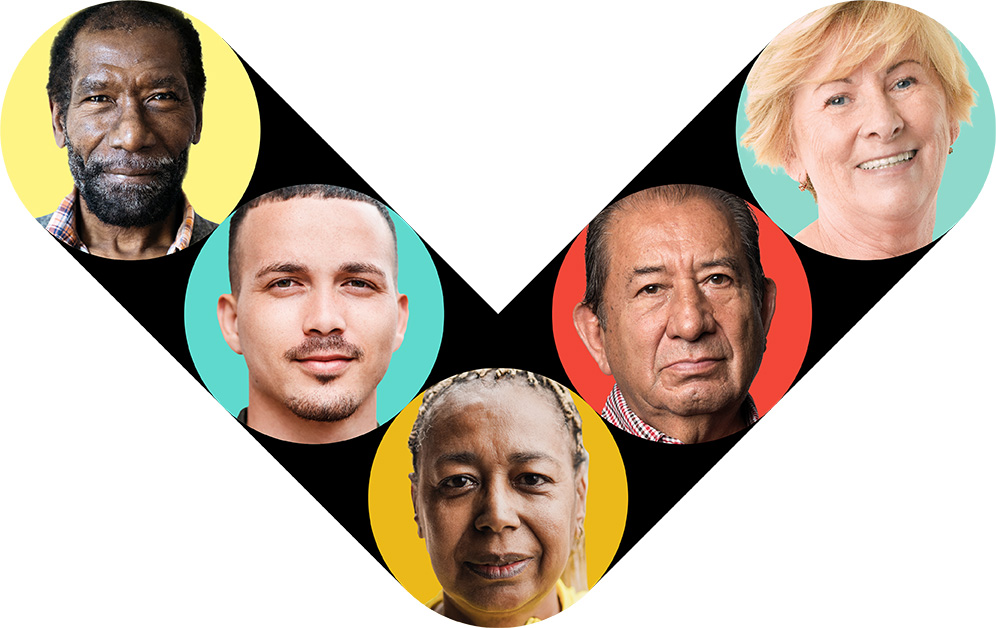The Data Jigsaw is a recent initiative researching muscle and joint conditions to improve future care. Understanding more about the people living with these conditions can answer key questions such as ‘is this disease common?’, or ‘could my disease be diagnosed quicker?’, all unlocked by analysing patient data. The University of Manchester is leading this research which will piece together information using patient’s health records from Salford Royal Hospital, Salford GPs and Salford Council’s adult social care service.

About us
Muscle and joint conditions need new solutions. Salford patient records can provide the answers.
Our team
Helping Salford overcome muscle and joint conditions. For the full team, please visit https://blogs.manchester. ac.uk/centre-for-epidemiology/assembling-the-data-jigsaw/
-
Professor Will Dixon
Prof Will Dixon leads the project. He’s a consultant rheumatologist at Salford Royal Hospital and a Professor of Digital Epidemiology at the University of Manchester
-
Professor John McBeth
Prof John McBeth, Professor of Chronic Disease Epidemiology at the University of Manchester, leads the work answering the project’s most pressing clinical research questions.
-
Professor Niels Peek
Prof Niels Peek, Professor of Health Informatics at the University of Manchester, leads the analysing and extracting of different types of data.
-
Professor Caroline Sanders
Prof Caroline Sanders, Professor of Medical Sociology at the University of Manchester, leads the building and maintaining of public and patient trust throughout the project.
Our research
Involving patients and the public
To build understanding and trust around sharing patient data for research, we have reached out to the people whose health information is being used to power our research, and listened to their views. We’ve also created an advisory group with the Salford community, helping raise awareness of the research and allowing a range of voices and lived experiences to be heard within it.
We need new research
Muscle and joint conditions, like arthritis, are impacting the quality of people’s lives through pain and disability. Right now, there’s not enough information to help us move better care forward. The data we need is already out there, so the task for researchers is to ask the right questions then bring together and analyse the data in the right way. From there, doctors and researchers can make progress in understanding muscle and joint disease on a deeper level.

Our research questions
Is this disease common?
The more we know, the better we can inform health services on how to support people. We want to understand how often muscle and joint conditions affect people in Salford, and the ways these conditions influence people’s day-to-day lives.
Could my disease be diagnosed more quickly?
One of the conditions we’re studying is axial spondyloarthritis, or axSpA. This long-term disease causes back pain and inflammation, restricting people’s movement. There are often delays of several years before axSpA is diagnosed, which means they do not get the treatment they need at the right time. The Data Jigsaw are working with IQVIA (a global company working with patient data to deliver clinical research and health technology) to develop a way of diagnosing axSpA earlier meaning patients would get the right treatment earlier too. This is just one example of how data sharing for research can help with diagnosis and improve care.
Should I take these pain relievers?
Pain relief is often prescribed for muscle and joint issues, but people can experience side effects that make life difficult. The data we are analysing will let us look at the big picture of pain relief, revealing more on what works best, and why and when side effects happen including those important to patients. We’ll also be able to explore how over-the-counter supplements, like CBD oils, are used and why. By addressing these areas, we can create positive change in how pain is managed.
How we use and work with patient data
We are analysing information from four sources:
We are using medical information, like symptoms and diagnoses, taken from thousands of rheumatology outpatient letters and feeding them to computers to be analysed. This allows patterns and insights to be considered, such as measuring how commonly people are newly diagnosed with different types of arthritis.
We are analysing information taken from GP electronic health records, joined with information taken from hospital electronic health records. This will, allow us to find patterns that suggest someone may have a rare muscle or joint condition that is yet to be diagnosed. We will examine how using this type of data could hopefully lead to earlier diagnosis of axial spondyloarthritis (axSpA) in the future. This will provide an example of the potential use of such records for earlier diagnosis of other conditions.
We know many people take medications to manage symptoms of muscle and joint conditions, and get help with daily activities, but this information isn’t always recorded in medical records. Using an online questionnaire, we will collect these details directly from patients which can help us build a more realistic view of muscle and joint conditions, leading to more effective care.
We will analyse information taken from the questionnaire, along with information taken from hospital records to learn more about patients’ experience using pain relievers and over-the- counter medication, as well as the support family, friends and neighbours provide.
The social care a patient might receive is held in records separate to NHS ones. We will analyse an extract of information from both types of records joined together to get a more accurate picture about the impact of muscle and joint conditions on people’s lives, to understand the level and cost of social care needed in arthritis, and how that compares to other health conditions.

Keeping your data safe
Find out how we keep your data safe
View filmWe are committed to the highest standards of data protection, using the safest, most secure ways to allow researchers access to the data. The information we use is directly relevant to the research we are conducting. Personal information such as name, address, and date of birth is always removed from information before the researcher can access it. The information researchers have access to is called de-identified information. We are using this de-identified information, having received national approval to use it, in a controlled and secure environment in the hospital. If you have previously opted out of your health information being used in research, your information will not have been included in the data being analysed in the Data Jigsaw research.
If you would like to know more about how to opt-out from your health information being used in future research please visit this page for more information on how: tinyurl.com/opting-out-of-sharing-data
Please visit: https://blogs.manchester.ac.uk/centre-for-epidemiology/assembling-the-data-jigsaw/ for further information
Contact us
If you have any comments or questions about the Data Jigsaw, please get in touch.
This could be about the research projects, how we are handling data, the communications
materials (eg posters, adverts or website), or anything else you wish to share.
Feedback
Email us at jigsaw@manchester.ac.uk